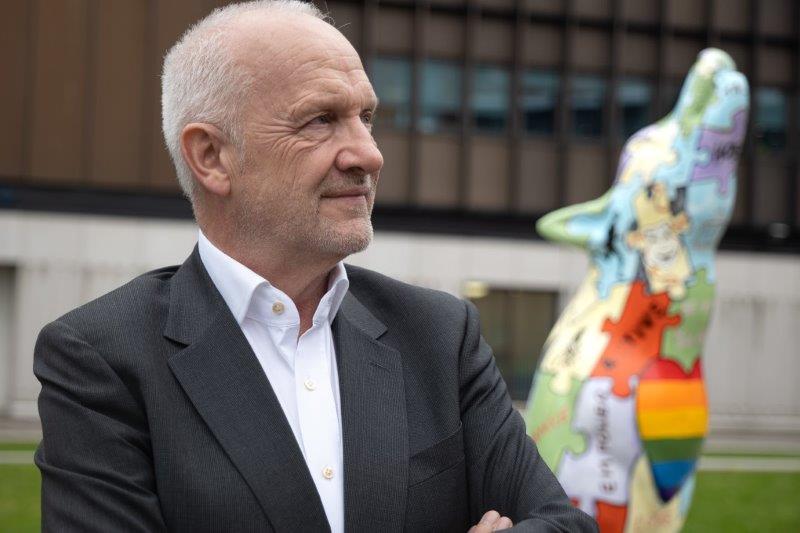This guest article about the new leadership needed in UK universities is written by John Raftery, PhD
Trusted Advisor. Interim Vice Chancellor. Advises and supports universities and their leaders. Recently completed a successful assignment as interim VC at the University of Wolverhampton.
It was always a complex, ridiculously demanding and highly paid job. But lately, it has reached new levels of complexity, and demand. Simultaneously, Educational Leader and Chief Executive Officer, Provost and President, the British Vice Chancellor today is expected to have deep knowledge and academic credibility as an educator and researcher, in addition to being entrepreneurial, able to understand finances, planning, company and charity law, while also being an effective public-facing communicator.
The hero leader is obsolete, if not dead. The new leadership needed in UK universities must be capable of meeting the moment.
Seven years in training
Highly effective leaders liberate creative potential and discretionary effort above most employees’ baseline, of coming in, doing acceptable work and going home to their families. It is unlikely this can be achieved unless most members of the organisation have deep respect for the leader who has visible mastery and the highest technical expertise in one or more of the specialisms in the organisation. This is why most University Vice Chancellors hold a doctoral degree (involving a minimum of seven years of full-time post-secondary education) and are published authors in their field. This is the type of ‘hero leader’ naturally chosen by organisations made up of large numbers of highly qualified, highly educated, independently-minded professionals with strong vocational allegiances, such as law firms, advertising agencies, universities or hospitals.
We should not be too surprised then that universities – through their Council or Board – have tended to choose leaders who fit the ‘hero leader’ description and are widely held to be ‘the smartest person in the room’. Just look at the part of the job description which relates to leading the academic community that is the university. Successful candidates will be “exceptional”.
Here is just a small selection of the key responsibilities listed for a recently appointed VC in England:
- Develop and lead the strategic vision of the university through…inclusive student success and world-class research which changes society and the economy.
- Promote a transparent, innovative, transformational working and learning environment enabling staff and students to reach their full potential.
- Advance the University’s academic excellence in learning, teaching, research and knowledge transfer.
- Ensure the University provides an excellent and distinctive education and student experience.
- Develop an ambitious University research profile.
- Effectively influence and advocate in the HE sector on national policy matters through active engagement with Government, funders and policymakers.
- Inspire and motivate staff at all levels, engage with representative bodies and networks and attract and retain global talent.
Have we reached peak ‘impossibilism’ in what we demand of leaders of large educational institutions? My friend Sir Chris Husbands, outgoing VC of Sheffield Hallam University, once told me he had seen a Head Teacher search seeking:
“the oratory of an Obama, the moral clarity of St Francis, the cunning of Bismarck, the inspiration of Churchill and the financial acumen of Warren Buffet“.
The ‘non-stake holding stakeholder’.
There is an expectation that the VC is accountable to many “stakeholders” who really are holders of a stake in the organisation, but also many others who hold no stake, are not ‘invested’ in the university, but are not slow to level criticism and make recommendations for how the VC should, or should not, spend money or do the job. This second type of ‘non-stakeholding stakeholder’ demands a special kind of thick-skinned resilience.
Neither hero nor leader.
Two decades of shifts in policy stance and regulatory approach added further, regulated demands while not removing any of those previously present. Even if the role of VC had not evolved and expanded, hero leaders would have been obsolete, but their demise was hastened by additional requirements to be a CEO as well as an academic leader. So, in addition to the responsibilities listed above, the VC – as CEO – is required to:
- “Ensure the University has a sustainable financial strategy and operating model…
- Ensure robust strategic planning, people management, risk management and business continuity arrangements…
- Oversee effective management of the University’s financial, human, physical and digital resources, ensuring the University remains sustainable and has the financial capacity to invest in its future.
- Ensure the University maximises the value of its physical estate driving efficiencies through rationalization and renewal”.
The route to 2024 taken by British universities has been marked by shifts, shocks and fragility. Undergraduate students entering English universities in 2023 will pay the same fee until they graduate in 2026, a full fourteen years since the £9000 fee was introduced in 2012. For those fourteen years, unless there is a change of policy, universities will have been required to absorb all increased costs – of the order of 50% – while charging essentially the same price for undergraduate courses as they did in 2012. In what other organisation has this been the case?
Unsurprisingly, there has been a significant deterioration of financial resilience for many institutions. According to the National Audit Office, one-third of English universities in 2021 had in-year deficits in one of the most successful higher education systems in the world. Facing this breadth and depth of responsibility, ‘hero leaders’ are neither heroes nor leaders. Hero leaders are not helpful when they create dependencies and bottlenecks, when they limit, rather than liberate, the intellectual potential of highly educated staff in the organisation.
A new leadership to meet the moment.
The increased complexity, regulation and financial fragility of 2024 demand, paradoxically, that university leaders be a little less self-reliant. Instead, if they are wise, they will lead, mentor, coach and develop. They will expand leadership resources with their eye on inclusivity, making allies of staff who add ideas and value, building collaboration and creativity and, liberating individuals to exceed their potential by working effectively in coherent teams.
We teach people how to treat us. Hero leaders can fall into the habit of solving problems for their people, breeding dependency and teaching people to come for a solution at the first sign of a challenge. Unlike the hero leader of old, the powerful new leader does not bring food, instead, they teach their colleagues how to farm and fish.
About John Raftery, PhD
Trusted Advisor. Interim Vice Chancellor. Advises and supports universities and their leaders. Recently completed a successful assignment as interim VC at the University of Wolverhampton.
Four decades of top leadership experience: The Hong Kong Polytechnic University, Oxford Brookes, and London Metropolitan University, where he was Vice Chancellor and Chief Executive and successfully led a complex turnaround and cultural transformation. One of the pioneers of the use of simulation in project price forecasting and risk analysis now routinely implemented in industry in Europe, the US and Asia, his recent writings are on adaptive leadership and challenges in higher education in the US and the UK.
In his earlier career, he worked on assignments on risk in major public infrastructure projects valued at more than US$20bn, and on cartels and restrictive practices in Hong Kong, Finland and the UK. He served as an advisor to the UK Prime Minister’s Initiative Research schemes for UK-India and UK-India-US. Board appointments in the UK include the Office of the Independent Adjudicator, the Open University National Role Advisory Board, Access HE, and the Council of Ruskin College Oxford.
We deliver world-class executive search, interim leadership and leadership & talent consultancy. To support your and your team’s development of the new leadership needed in UK universities, speak to Julia Roberts, who leads our Education team.

